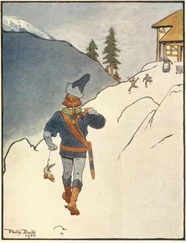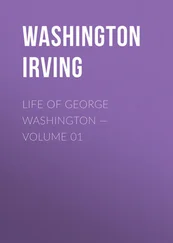Pelham Wodehouse - Not George Washington — an Autobiographical Novel
Здесь есть возможность читать онлайн «Pelham Wodehouse - Not George Washington — an Autobiographical Novel» весь текст электронной книги совершенно бесплатно (целиком полную версию без сокращений). В некоторых случаях можно слушать аудио, скачать через торрент в формате fb2 и присутствует краткое содержание. Жанр: Классическая проза, Юмористическая проза, на английском языке. Описание произведения, (предисловие) а так же отзывы посетителей доступны на портале библиотеки ЛибКат.
- Название:Not George Washington — an Autobiographical Novel
- Автор:
- Жанр:
- Год:неизвестен
- ISBN:нет данных
- Рейтинг книги:4 / 5. Голосов: 1
-
Избранное:Добавить в избранное
- Отзывы:
-
Ваша оценка:
- 80
- 1
- 2
- 3
- 4
- 5
Not George Washington — an Autobiographical Novel: краткое содержание, описание и аннотация
Предлагаем к чтению аннотацию, описание, краткое содержание или предисловие (зависит от того, что написал сам автор книги «Not George Washington — an Autobiographical Novel»). Если вы не нашли необходимую информацию о книге — напишите в комментариях, мы постараемся отыскать её.
Not George Washington — an Autobiographical Novel — читать онлайн бесплатно полную книгу (весь текст) целиком
Ниже представлен текст книги, разбитый по страницам. Система сохранения места последней прочитанной страницы, позволяет с удобством читать онлайн бесплатно книгу «Not George Washington — an Autobiographical Novel», без необходимости каждый раз заново искать на чём Вы остановились. Поставьте закладку, и сможете в любой момент перейти на страницу, на которой закончили чтение.
Интервал:
Закладка:
"I generally have supper at Pepolo's," said Julian, as we left the theatre, "before a Covent Garden Ball. Shall we go on there?"
There are two entrances to Pepolo's restaurant, one leading to the ground floor, the other to the brasserie in the basement. I liked to spend an hour or so there occasionally, smoking and watching the crowd. Every sixth visit on an average I would happen upon somebody interesting among the ordinary throng of medical students and third-rate clerks—watery-eyed old fellows who remembered Cremorne, a mahogany derelict who had spent his youth on the sea when liners were sailing-ships, and the apprentices, terrorised by bullying mates and the rollers of the Bay, lay howling in the scuppers and prayed to be thrown overboard. He told me of one voyage on which the Malay cook went mad, and, escaping into the ratlines, shot down a dozen of the crew before he himself was sniped.
The supper tables are separated from the brasserie by a line of stucco arches, and as it was now a quarter to twelve the place was full. At a first glance it seemed that there were no empty supper tables. Presently, however, we saw one, laid for four, at which only one man was sitting.
"Hullo!" said Julian, "there's Malim. Let's go and see if we can push into his table. Well, Malim, how are you? Do you know Cloyster?"
Mr. Malim had a lofty expression. I should have put him down as a scholarly recluse. His first words upset this view somewhat.
"Coming to Covent Garden?" he said, genially. "I am. So is Kit. She'll be down soon."
"Good," said Julian; "may Jimmy and I have supper at your table?"
"Do," said Malim. "Plenty of room. We'd better order our food and not wait for her."
We took our places, and looked round us. The hum of conversation was persistent. It rose above the clatter of the supper tables and the sudden bursts of laughter.
It was now five minutes to twelve. All at once those nearest the door sprang to their feet. A girl in scarlet and black had come in.
"Ah, there's Kit at last," said Malim.
"They're cheering her," said Julian.
As he spoke, the tentative murmur of a cheer was caught up by everyone. Men leaped upon chairs and tables.
"Hullo, hullo, hullo!" said Kit, reaching us. "Kiddie, when they do that it makes me feel shy."
She was laughing like a child. She leaned across the table, put her arms round Malim's neck, and kissed him. She glanced at us.
Malim smiled quietly, but said nothing.
She kissed Julian, and she kissed me.
"Now we're all friends," she said, sitting down.
"Better know each other's names," said Malim. "Kit, this is Mr. Cloyster. Mr. Cloyster, may I introduce you to my wife?"
CHAPTER 7
I MEET MR. THOMAS BLAKE (James Orlebar Cloyster's narrative continued)
Someone had told me that, the glory of Covent Garden Ball had departed. It may be so. Yet the floor, with its strange conglomeration of music-hall artists, callow university men, shady horse-dealers, and raucous military infants, had an atmosphere of more than meretricious gaiety. The close of an old year and the birth of a new one touch the toughest.
The band was working away with a strident brassiness which filled the room with noise. The women's dresses were a shriek of colour. The vulgarity of the scene was so immense as to be almost admirable. It was certainly interesting.
Watching his opportunity, Julian presently drew me aside into the smoking-room.
"Malim," he said, "has paid you a great compliment."
"Really," I said, rather surprised, for Julian's acquaintance had done nothing more, to my knowledge, than give me a cigar and a whiskey-and-soda.
"He's introduced you to his wife."
"Very good of him, I'm sure."
"You don't understand. You see Kit for what she is: a pretty, good-natured creature bred in the gutter. But Malim—well, he's in the Foreign Office and is secretary to Sir George Grant."
"Then what in Heaven's name," I cried, "induced him to marry——"
"My dear Jimmy," said Julian, adroitly avoiding the arm of an exuberant lady impersonating Winter, and making fair practice with her detachable icicles, "it was Kit or no one. Just consider Malim's position, which was that of thousands of other men of his type. They are the cleverest men of their schools; they are the intellectual stars of their Varsities. I was at Oxford with Malim. He was a sort of tin god. Double-first and all that. Just like all the rest of them. They get what is looked upon as a splendid appointment under Government. They come to London, hire comfortable chambers or a flat, go off to their office in the morning, leave it in the evening, and are given a salary which increases by regular gradations from an initial two hundred a year. Say that a man begins this kind of work at twenty-four. What are his matrimonial prospects? His office work occupies his entire attention (the idea that Government clerks don't work is a fiction preserved merely for the writers of burlesque) from the moment he wakes in the morning until dinner. His leisure extends, roughly speaking, from eight-thirty until twelve. The man whom I am discussing, and of whom Malim is a type, is, as I have already proved, intellectual. He has, therefore, ambitions. The more intellectual he is the more he loathes the stupid routine of his daily task. Thus his leisure is his most valuable possession. There are books he wants to read—those which he liked in the days previous to his slavery—and new ones which he sees published every day. There are plays he wants to see performed. And there are subjects on which he would like to write—would give his left hand to write, if the loss of that limb wouldn't disqualify him for his post. Where is his social chance? It surely exists only in the utter abandonment of his personal projects. And to go out when one is tied to the clock is a poor sort of game. But suppose he does seek the society of what friends he can muster in London. Is he made much of, fussed over? Not a bit of it. Brainless subalterns, ridiculous midshipmen, have, in the eyes of the girl whom he has come to see, a reputation that he can never win. They're in the Service; they're so dashing; they're so charmingly extravagant; they're so tremendous in face of an emergency that their conversational limitations of "Yes" and "No" are hailed as brilliant flights of genius. Their inane anecdotes, their pointless observations are positively courted. It is they who retire to the conservatory with the divine Violet, whose face is like the Venus of Milo's, whose hair (one hears) reaches to her knees, whose eyes are like blue saucers, and whose complexion is a pink poem. It is Jane, the stumpy, the flat-footed—Jane, who wears glasses and has all the virtues which are supposed to go with indigestion: big hands and an enormous waist—Jane, I repeat, who is told off to talk to a man like Malim. If, on the other hand, he and his fellows refuse to put on evening clothes and be bored to death of an evening, who can blame them? If they deliberately find enough satisfaction for their needs in the company of a circle of men friends and the casual pleasures of the town, selfishness is the last epithet with which their behaviour can be charged. Unselfishness has been their curse. No sane person would, of his own accord, become the automaton that a Government office requires. Pressure on the part of relations, of parents, has been brought to bear on them. The steady employment, the graduated income, the pension—that fatal pension—has been danced by their fathers and their mothers and their Uncle Johns before their eyes. Appeals have been made to them on filial, not to say religious, grounds. Threats would have availed nothing; but appeals—downright tearful appeals from mamma, husky, hand-gripping appeals from papa—that is what has made escape impossible. A huge act of unselfishness has been compelled; a lifetime of reactionary egotism is inevitable and legitimate. I was wrong when I said Malim was typical. He has to the good an ingenuity which assists naturally in the solution of the problem of self and circumstance. A year or two ago chance brought him in contact with Kit. They struck up a friendship. He became an habitué at the Fried Fish Shop in Tottenham Court Road. Whenever we questioned his taste he said that a physician recommended fish as a tonic for the brain. But it was not his brain that took Malim to the fried fish shop. It was his heart. He loved Kit, and presently he married her. One would have said this was an impossible step. Misery for Malim's people, his friends, himself, and afterwards for Kit. But Nature has endowed both Malim and Kit with extraordinary commonsense. He kept to his flat; she kept to her job in the fried fish shop. Only, instead of living in, she was able to retire after her day's work to a little house which he hired for her in the Hampstead Road. Her work, for which she is eminently fitted, keeps her out of mischief. His flat gives the impression to his family and the head of his department that he is still a bachelor. Thus, all goes well."
Читать дальшеИнтервал:
Закладка:
Похожие книги на «Not George Washington — an Autobiographical Novel»
Представляем Вашему вниманию похожие книги на «Not George Washington — an Autobiographical Novel» списком для выбора. Мы отобрали схожую по названию и смыслу литературу в надежде предоставить читателям больше вариантов отыскать новые, интересные, ещё непрочитанные произведения.
Обсуждение, отзывы о книге «Not George Washington — an Autobiographical Novel» и просто собственные мнения читателей. Оставьте ваши комментарии, напишите, что Вы думаете о произведении, его смысле или главных героях. Укажите что конкретно понравилось, а что нет, и почему Вы так считаете.



